TLOU’s second season concluded on May 25th. This review will discuss the show and season in detail, including the finale.
Please consider this your spoiler warning.
As always, thanks for reading Off-Balance!
Ryan.
Though the tide has undeniably shifted over the past few years, video game adaptions, historically, have never been praised for either their commitment to the source material or their overall quality.
There are exceptions, of course, cult classics and in their own way, undervalued gems.
Yet all things being equal, there were no guarantees, in bringing The Last of Us to the live-action screen, even with the vote of confidence inherently present in HBO’s backing. Though in a way, it does speak to what developer Naughty Dog, primarily led by writer and co-director Neil Druckmann, had already brought to life in 2013: that which, despite some blemishes on the gameplay side, was a narrative rich in thematic depth and cinematic execution.
And so, to success, The Last of Us’ first season saw Joel and Ellie’s odyssey across America, an exploration of love, loss and sacrifice told to new and familiar audiences both.
The second season, however, which concluded its seven-episode run with its finale this past Sunday, well, it was tricker.
Its source material, 2020’s The Last of Us Part II, was, on numerous fronts, a notoriously contested title and any adaption worth its salt, as this one was, would then be making the same bold moves, for better or worse.
Darker. More complex. More challenging from a raw engagement point-of-view.
Where it mattered most, it stuck the landing but knowing that not only is a third season on the way, per co-showrunner Craig Mazin, they’re already angling for a fourth.
Leaving this second season then, as a byproduct, feeling like something of a stopgap.
Held back by poor pacing, structural missteps and a larger sense of inconsistency, a chapter in the larger story rather than being a complete effort on its own merits.
As she returns from torturing Nora (Tati Gabrielle) and leaving her to die, Ellie (Bella Ramsey) tells a still-recovering Dina (Isabela Merced) that, while she has a small lead on Abby’s (Kaitlyn Dever) whereabouts, she also finally admits, in full, why Abby’s crew killed Joel (Pedro Pascal) in the first place: former Fireflies, seeking revenge for his hospital massacre in order to save Ellie’s life years earlier (though in doing so, robbing the world, potentially, of a Cordyceps cure).
It is a revelation that carries a great deal of weight for Dina.
Not only was she there in the moments before Joel was killed, she was particularly close with him, even more so than Ellie was in his final days (given their resolved-too-late dynamic) and often drove Ellie forward throughout their Seattle revenge-quest in both his memory and that of her own lost loved ones.
Though as she realizes the scope of just what Ellie is telling her, one can see Dina make a quick but immediate decision - it is time for the group to cut their loses and return to Jackson.
And praise here must go to Merced, who, given the structure of the story presented, didn’t have much material to work with over the final two episodes but cements herself as the season’s MVP regardless: Dina’s warmth, regret, dashes of anger and honesty, all captured in her performance, as a person who has found a resilience in not immediately succumbing to her worst impulses during the zombie apocalypse.
Jesse too (Young Mazino), feels similar.
Having deduced Dina’s pregnancy, Jesse tells Ellie that, although he does care for Dina, it is not in the same way Ellie does but this new reality, it does increase his urgency to rendezvous with Tommy (Gabriel Luna) and return home to their community.
Ellie, however, feeling patronized, lashes out.
She couldn't care less for whatever they’re trying to build in Jackson, telling Jesse her community, Joel, being so violently taken from her means that she’ll be finishing what she started, with or without Jesse’s help, in bringing his murderers to justice.
Separating, she moves out on her own, more determined than ever.
Though after nearly escaping death by the Seraphites, as the Wolves, led by Issac (Jeffery Wright) engage in a massive offensive against their island, Ellie scrapes her way to the city’s aquarium, where she finds both Owen (Spencer Lord) and Mel (Ariela Barer) and demands Abby’s location.
Yet in the insuring scuffle, both are killed and the pregnant Mel, with her dying words, asks Ellie to perform a C-section on her unborn child, to Ellie’s horror, only too late, as she bleeds to death.
Though quickly found by relieved Tommy and Jesse, they all retreat, once more, to the theatre.
And furious Abby gets to live though she-may-be, Ellie acknowledges it is probably for the best they return to Jackson, finding too, a measure of reconciliation with Jesse as she does.
When push comes to shove, she’d do anything to keep him safe.
So as Tommy’s screams ring out from the foyer, Ellie and Jesse rush forward in defense, only for Ellie to watch, helplessly, as Jesse is promptly killed, shot in the head by Abby, who, with both Ellie and Tommy at gunpoint, has the upper hand.
Decrying Ellie’s killing of her friends despite being spared during their initial confrontation in Wyoming, as shots ring out, the screen cuts to black… only to remerge in the final moments on Abby, three days earlier, as she’s summoned to a meeting with Issac within the WLF compound.
And on that reveal/cliffhanger, is where S2 ends: with Jesse dead, Ellie cornered and the show laying the groundwork for its to-be third season with perhaps its biggest swing yet - with the switch in protagonists, from Ellie to Abby, in then showing the preceding events from her perspective.
Naturally, this occurred in the video game as well but it was followed with immediate payoff, as the player moved seamlessly from the first half of the story, Ellie’s, into the next.
The question being then, can the show maintain that wider investment, in the wait that will occur two, three years, at least, between seasons?
Initial reporting is showing that viewership numbers have dropped noticeably week-over-week compared to the first season and the second, albeit, with the context of the finale’s airing window understood (that being, Memorial Day weekend in the United States, the show’s largest market) and the reality of what is an air-first, DVR/stream-later system for many.
But it also highlights where this season stumbled, even if dissecting that truth is not, as it would seem, an entirely simple exercise.
With any discussion regarding The Last of Us, it does bear reiterating, for clarity, just how volatile the initial response to The Last of Us Part II was, in 2020.
On one hand there was acclaim, yes, wide-reaching praise for what Naughty Dog achieved technically, presentation/gameplay-wise and with their storytelling acumen, alongside the game’s lead performances - with Laura Bailey specifically, who portrayed Abby, winning a BAFTA for her portrayal.
Though after major portions of the game, from cutscenes to plot details, were leaked prior to release not only did Part II lose its chance at being taken honestly at face value, it also provided unfortunate leeway for the bigoted worst of the ever-online contingent to make their voices heard.
Reviewing bombing, railing against the project’s LGBTQ+ representation and horrific death threats against both Druckmann and Bailey for their creative roles.
Now, that doesn’t mean that the game is removed from legitimate criticism because of that but it is an intrinsic part of both its fabric and then, as a result, this second season.
And sure, there is an element of truth to the argument that any adaptation, regardless of medium or source material, must strike out on its own and to an extent, The Last of Us very much does so.
Yet knowing the vitriol that preceded it? It colours both baseline engagement with the show and the choices it makes.
Rather than leaving Abby’s motivations purposely ambiguous and unexplored until later on, instead, everything was laid out from the moment she appeared.
Instead of colouring the aftermath of Joel’s actions in Salt Lake City with a certain shade of grey, Druckmann has gone on record, disputing any sort of moral positioning and instead of working with a degree of subtlety in regards to explaining either philosophical musing or many moment-to-moment character interactions, heavy exposition and clunky dialogue in support was a frequent go-to.
Broadly, these choices don’t always land with conviction but instead, concession, square pegs in round holes.
But again, if the decision was made to adapt a harder, more black-and-white approach simply out of the human necessity that Druckmann, most prominently, felt the need to better protect both himself and his actors this time around, then absolutely, fair enough.
No amount of online hate by the media illiterate is worth that pursuit.
And in fairness, many things did bear out quite well.
Be it the single episode back-loading of the Joel-Ellie flashback sequences, to a probable Emmy nomination for Pascal, in order to keep momentum primarily focused on Seattle (to inconsistent success) or the understanding that television, given the medium-to-medium transition, must deliver information and character work in a different way.
There can’t be too many extended sequences of characters walking-and-talking, for example, in an effort to replicate gameplay flow because that would undoubtedly grow stagnant visually or the gripes many seem to have had, specifically, with Bella Ramsey’s performance and the writing that framed it.
Ashley Johnson, of course, though portraying Ellie as both a teenager and young adult in the games, was well into her 20s and then, her 30s, during the production of each title. Ramsey, at 21 as of this writing, is much closer in age to the character they’re playing and that simply brings forth a different energy, perhaps a more present immaturity that was - but also, wasn’t - spotlighted in the games in the same way.
For video game Ellie, out of necessity to the medium, is something akin to a one-woman army, able to tear through the rank-and-file of the Wolves and Seraphites with a cool precision of a hardened killer… but not only could such action stretch into incredulity on television, it wouldn’t totally mesh with what Mazin-Druckmann, Ramsey and the larger team have established for the show, either.
Ellie here, she’s more deceitful, juvenile, though just as selfish and self-centred, in a more visibly direct way, whilst lacking the surface-level dissociation that defined her in-game counterpart: even as, to Ramsey’s credit come the season’s close, that same feeling, that she is too far gone, too single-minded and reckless, persists.
What works though, does it hold up the season overall?
Well no, not entirely.
At its best - the production values, the occasional 1:1 recreations of the source material in staging and dialogue, the acting -, The Last of Us is indeed a show of strength in the HBO mold.
But the thing is, what was presented over these past seven episodes, it is only a portion of a continuing story, creating a foundation that just isn’t as solid as it could be.
For every strong expansion, slight or otherwise, the pacing both rushed and requiring three more episodes, at least, the more blunt characterization and narrative edges, the apparent need to try and present so many different threads at once, it all comes to dull the season’s impact.
Perhaps it is little more than a sophomore slump, Mazin and Druckmann, realizing they had a beast’s worth of material to adapt and just couldn’t find the rhythm, from a pure storytelling angle, they were looking for.
It sure felt like it.





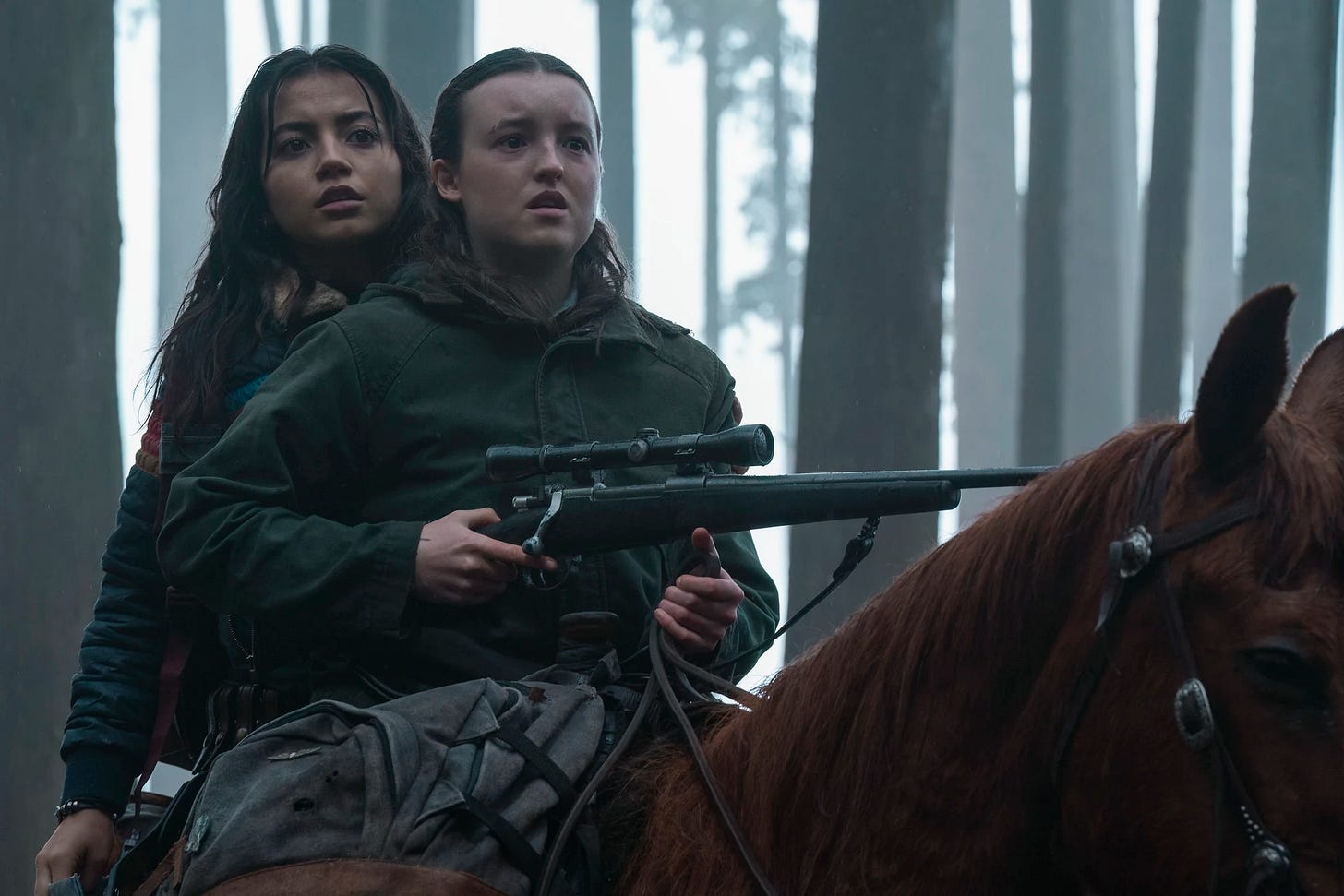
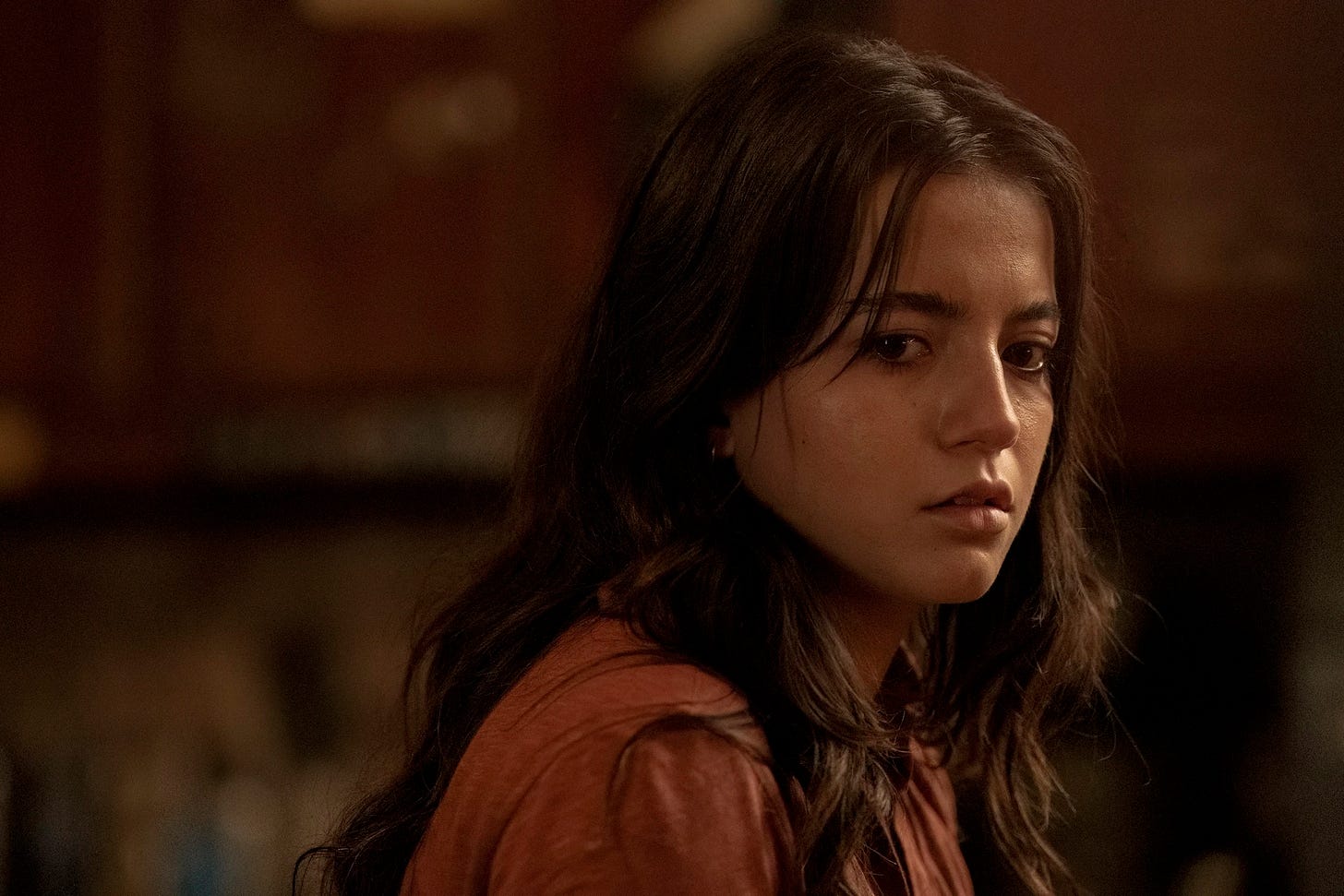
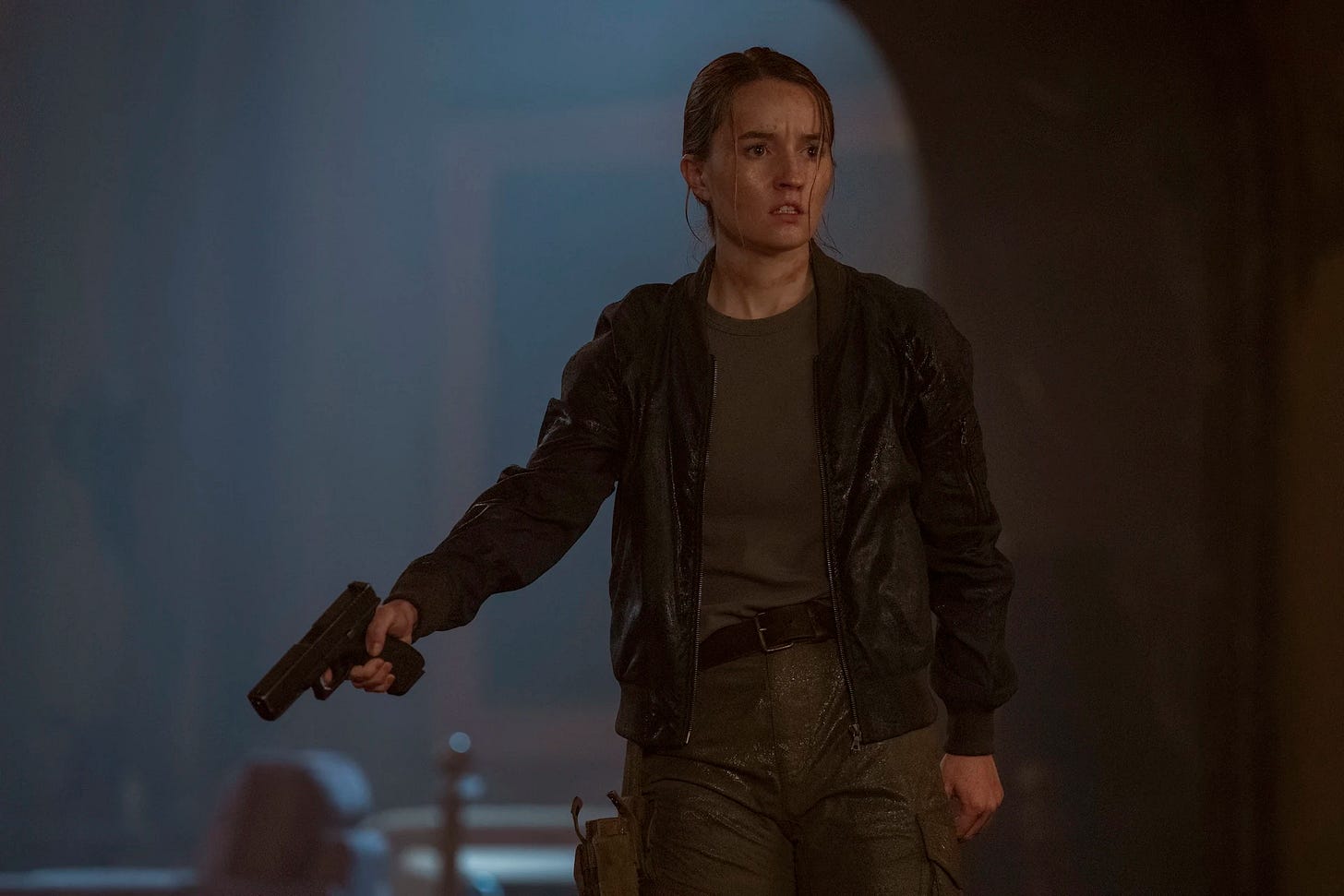
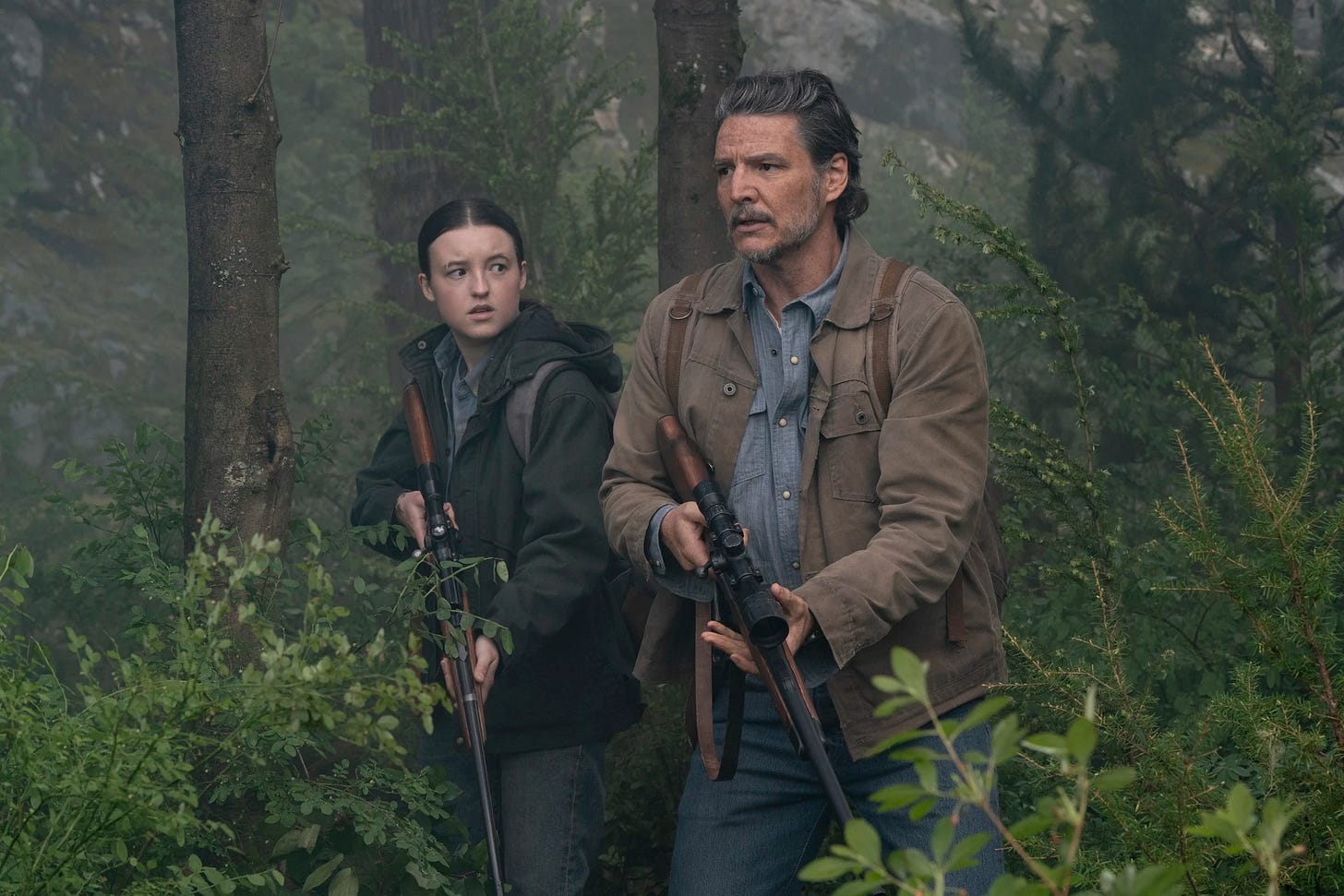
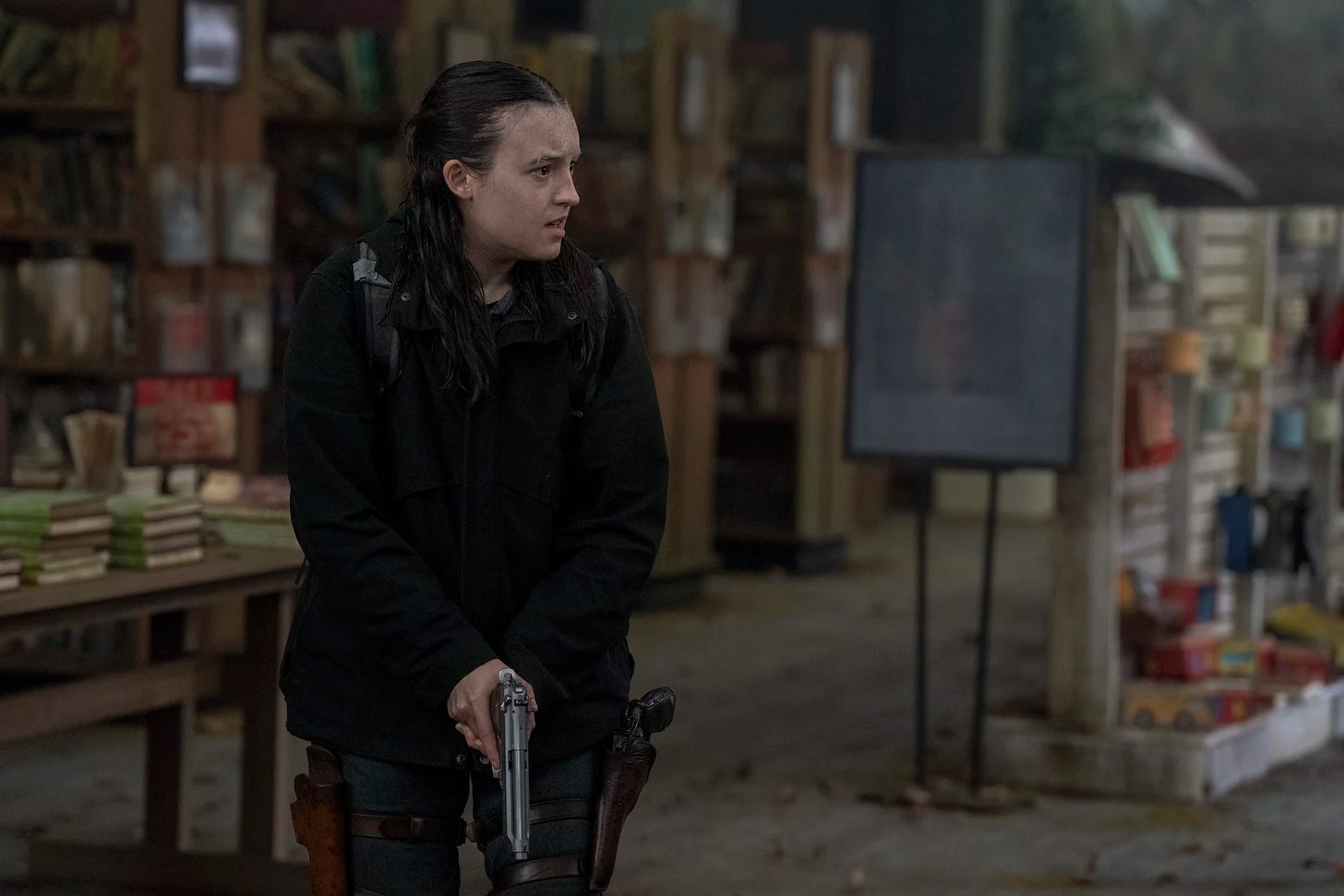
Ryan, this was yet another illuminating read. I'm not a gamer and came to the series late, drawn in primarily by my fascination with all things zombie. Even without the foundation of the game, it was clear that the second season felt rushed. The themes were so expansive and emotionally charged that they deserved more time to unfold, eight episodes simply weren’t enough to carry the weight of what the series was trying to explore. Despite that, I found the performances remarkable. Bella Ramsey, in particular, was bone chilling in the moments where all traces of human forgiveness had vanished. I left the finale with more questions than answers, which maybe is a good thing? Not sure yet, but being asked to wait a few years to witness the story told from the perspective of Abby doesn't have me excited. I hope to be surprised.